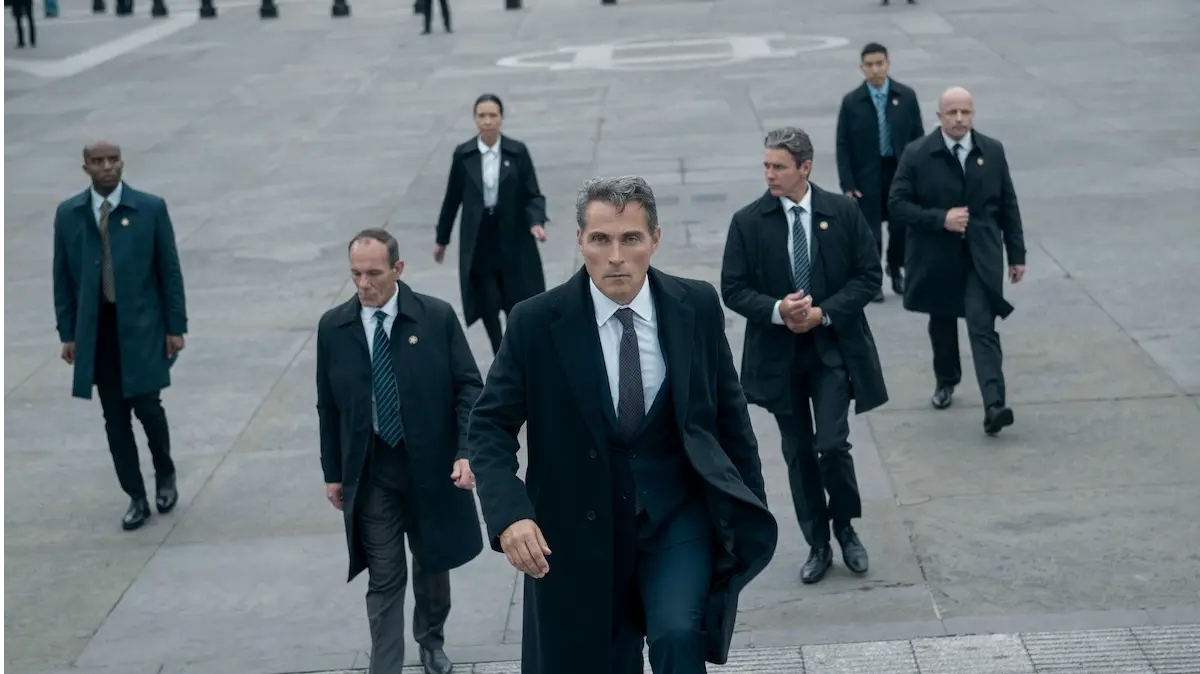Is the Law of the Sea treaty in The Diplomat Real and why won’t the U.S. sign it? Explained
-

In The Diplomat, political maneuvering often blurs the line between scripted fiction and the uneasy truths of international diplomacy. The third season of the acclaimed Netflix drama pushes that realism even further, introducing a storyline centered around the Law of the Sea Treaty. This controversial agreement exists not only in the show but also in real-world geopolitics.
The Law of the Sea Treaty: What it means in The Diplomat, and in reality
The Law of the Sea Treaty, also known as UNCLOS (United Nations Convention on the Law of the Sea), is not a fictional invention of The Diplomat. It’s a real international accord that defines nations’ rights and responsibilities in the world’s oceans — from territorial boundaries to the extraction of underwater resources. In the show, the treaty becomes a flashpoint for power, morality, and personal ambition. Vice President Hal Wyler (Rufus Sewell) is portrayed as being just “four Senate votes short” of passing it, while Kate Wyler (Keri Russell) supports him in navigating the moral and political consequences of pushing a global maritime agreement through a fractured government.
In real life, UNCLOS was adopted in 1982 and ratified by 168 countries — but not by the United States. Successive administrations have supported the treaty in principle, yet the U.S. Senate has never ratified it. In The Diplomat, Hal’s obsession with the treaty mirrors the real-world divisions in Washington. His determination to make it law at any cost creates new fault lines with President Grace Penn (Allison Janney), whose administration is already struggling to contain political fallout at home and abroad.
The show transforms an obscure piece of maritime legislation into a moral battleground, turning bureaucratic debate into high-stakes drama — exactly the kind of storytelling that defines The Diplomat’s success. As one of Hal’s aides remarks in the show:
“The Law of the Sea isn’t about water. It’s about power — and who controls it.”
That sentiment reflects the real geopolitics behind UNCLOS: a battle not of ideology, but of dominance in an increasingly contested ocean.
Inside The Diplomat Season 3: Power, betrayal, and a global crisis
Season 3 of The Diplomat marks the series’s most volatile chapter yet. What begins as a political negotiation evolves into a full-blown constitutional crisis, testing every loyalty that Kate Wyler once relied on. Following the sudden death of President Rayburn, Vice President Grace Penn ascends to the Oval Office, setting off a chain reaction that leaves Kate and Hal caught between truth and survival.
The passing of the Law of the Sea Treaty — engineered by Hal but credited to Penn — becomes the turning point of the season. From there, the narrative spirals into deeper intrigue: a missing Russian submarine carrying a nuclear torpedo, secret deals with British Prime Minister Nicol Trowbridge (Rory Kinnear), and the quiet dismantling of diplomatic ethics in the name of national security.
By the finale, the show’s moral core collapses under political pressure. Grace Penn and Hal secretly orchestrate the seizure of the Russian Poseidon torpedo, letting Britain and Russia bear the blame. Kate, though momentarily reconciled with Hal, realizes she has been manipulated — her credibility weaponized to mask an act of war.
Season 3 ends not in resolution but revelation: the United States has crossed a line that diplomacy cannot excuse. For a series built on conversations, The Diplomat ends in silence — the kind that comes before global conflict.
The Diplomat Season 3 reminds viewers that diplomacy is rarely about peace; it’s about control disguised as cooperation.
TOPICS: The Diplomat
- Is there going to be The Diplomat season 4? Renewal status and more explained
- Succession, The Bear, and Only Murders Lead the 2024 Golden Globes Nominees
- Which Top Emmy Contenders Will Be Left Out of the Best Actress in a Drama Nominations?
- Without Keri Russell, The Diplomat Would Be Background Noise